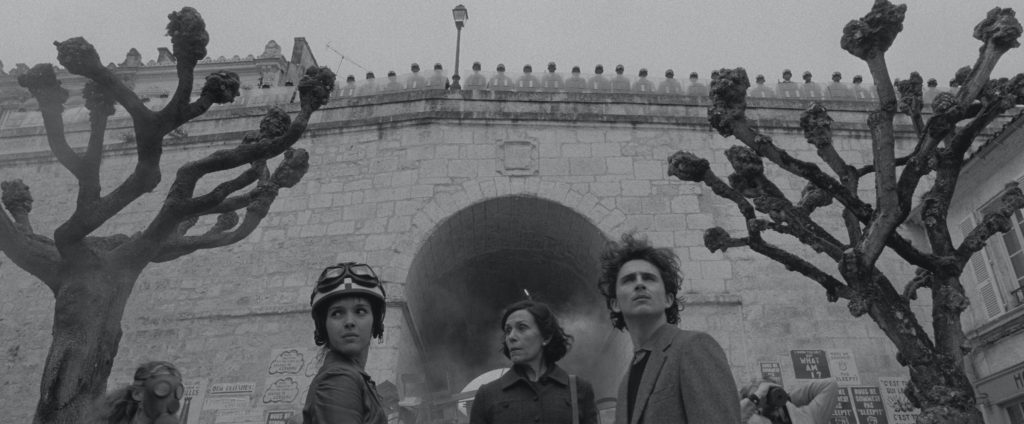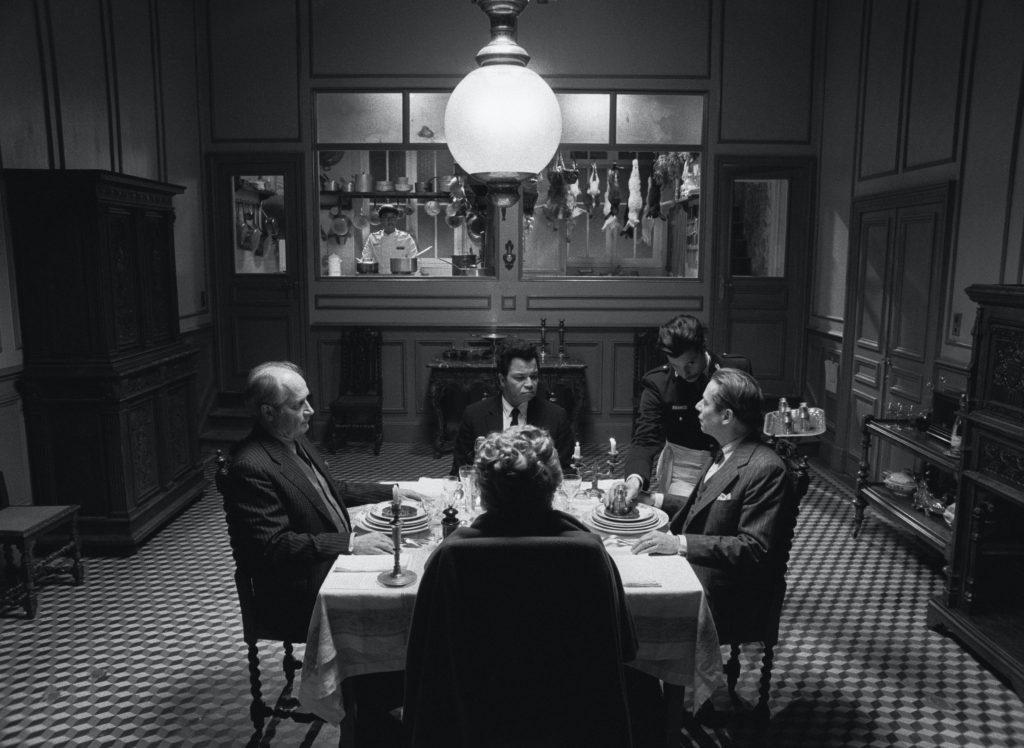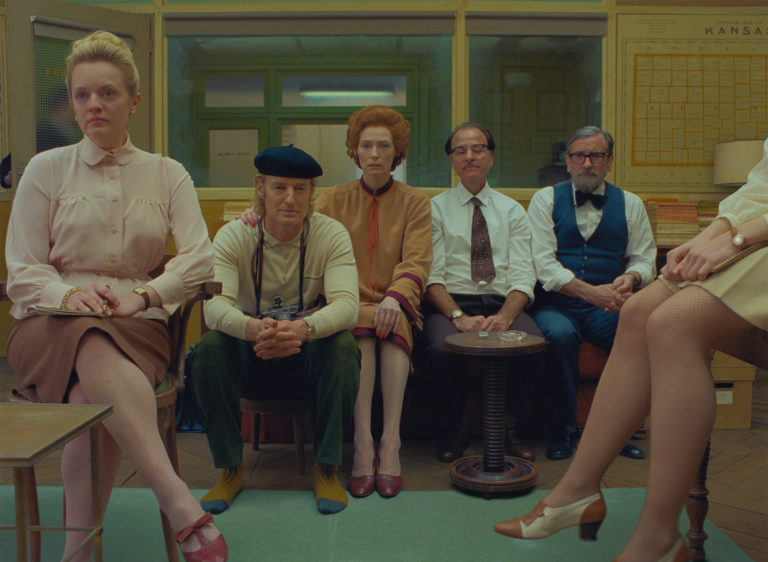The French Dispatch (2021 | USA | 107 minutes | Wes Anderson)
Wes Anderson may have arrived at his purest form with The French Dispatch, less a single film than an interlinked series of short stories set in the precious milieu of sometimes-indulgent longform journalism. At this point, you know who he is and who you are. If you’ve loved his previous films (as I do), but have wished that he could fit more stories, styles, and quirks into his filmmaking than you probably already have a lifetime subscription and will savor this elegiac visual magazine like a special holiday issue. If not, the thought of an overstuffed package that’s both adoring & gently skewering of the craft, might leave you refusing even a trial issue.
For me, the visit to the fictional town of Ennui-sur-Blasé via a corps of stuffy journalists was an utter delight of eye candy and inventive storytelling. An obituary introduces the publication, the French Dispatch (a sort of New Yorker by way of France by way of a Kansas newspaper supplement), on the occasion of the death of it’s eccentric founder and longtime editor (Bill Murray) and the ensuing final issue of their beloved magazine. With the history outlined and the personality of the office itself detailed in walkthrough diorama fashion, weekly “talk of the town” style correspondent (Owen Wilson) provides an amuse bouche, surveying the town via a whimsical bicycle tour with an emphasis on it’s would-be seedy underbelly.

The film then proceeds with New Yorker-ish parodies in which intrepid reporters embed themselves in their work, recounting curious tales with first-person storytelling. The pieces are essentially three independent short films, with distinct energies that each employ a kaleidoscopic array of formats as they flit between their erstwhile subjects and dip in and out of the veins of memory.
The first segment (“the Concrete Masterpiece”) unfolds from a retrospective lecture by the magazine’s longtime art critic (Tilda Swinton). Garbed in a flowing golden gown that matches her swooped 80s hairdo, she’s regales an auditorium with her foundational story of an outsider artist, a bedraggled and murderous inmate (Benicio del Toro). The tale is one of an influential and improbable career that sprung from a bizarre love story between inmate and captor (Lea Seydoux) during a lifetime prison sentence. As a small-time criminal, Adrien Brody rounds out the comedic story of unstable artistic temperament, art world speculation, rampant bribery, and simmering possibilities for madcap violence.

Next, in “Revisions to a Manifesto”, we meet Frances McDormand as a reporter who embeds herself within a silly student uprising (credo, “the Children Are Grumpy”) and in-beds herself with one of its young leaders played by Timotheé Chalamet (wild haired, ridiculously mustached, and embarrassed by his “new muscles”). It’s an extremely soft touch on the 1968 Paris uprisings, employing New Wave inspirations amid standoffs, strategy sessions, and goofy standoffs with the police. Amid infighting and romantic rivalries, it’s probably the most Wes Andersonian of the trio. The production design is cluttered with jokes, the swaps between black and white and primary colored filmmaking allow it to nod to multiple inspirations, and the cloud of ever-present doom hangs over a story of loneliness, hubris, and misplaced narcissistic ambition.
Finally, we meet Jeffrey Wright’s celebrated food critic, with a typographical (not photographic) memory on the set of a technicolor television interview. There, he recounts how his profile of a highly-esteemed police chef one winter’s night suddenly veered sideways into a citywide manhunt. A parody of buttoned-up French food culture begins with a crisply photographed black-and-white dinner party in a penthouse with Mathieu Amalric. Soon, enough, the actioned is heightened with betrayals and manhunts, told with manic animation in place of big budget action sequences. The kidnapping caper mines mines familiar themes of paternal devotion, makes room for convoluted schemes and high-stakes standoffs, all suffused with the inherent isolation of the expat experience.

Each chapter provides opportunities for all the handcrafted dioramas, symmetric cinematogrphay, clever use of text, and a mind-bogglingly stacked cast getting to playing dress-up. It’s more than enough to satisfy any Wes-ophile’s wildest dreams. As usual, the explosion of visual style and actorly indulgences are all in the service of counterbalancing the pervasive melancholy while fully indulging opportunities to play with decades worth of retro references. Maybe the substance never fully gels across the chapters, but if this is your cup of espresso you’ll certainly never get bored (being overwhelmed is a distinct possibility, one that might reward second or third viewings). I liked the stories in approximate order of presentation, but perhaps that’s indicative of how they may have been better served as separate short films. Yet, when the cavalcade of twee whimsy finally looped back to the present, I found that the epilogue of this collection of stories united by the role of work and its place in the outsider’s search for belonging hit with unexpected poignance.
The French Dispatch arrives in theaters on October 22nd. A shorter review appeared previously as part of our Telluride Film Festival coverage. All photos courtesy Searchlight Pictures.



